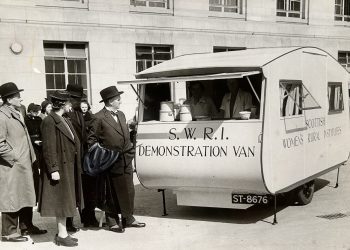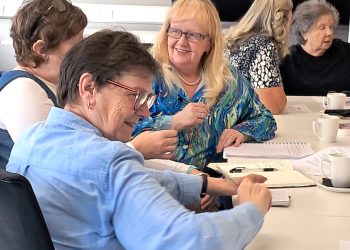First institute launches
Catherine Hogg Blair welcomes 37 women to a meeting in Longniddry, East Lothian, launching the first Scottish Women’s Rural Institute.
Rapid growth
Institutes multiply across Scotland and SWRI members contribute to rebuilding communities after the war.
National expansion
The SWRI grows rapidly across Scotland in the inter-war years.
Wartime resilience
Members preserve food, collect medicinal plants, host talks, and raise funds to support their communities during World War II.
Growth and gatherings
Competitions, events, and new Institutes flourish as the SWRI strengthens its reach, becoming Scotland’s largest women’s movement.
Jubilee reflections
50th anniversaries are celebrated with history projects, preserving community stories for future generations.
Sports and drama flourish
Members excel in newly-launched national sports competitions and theatre groups see members performing across Scotland.
Community engagement deepens
A focus on education, volunteering, and cultural programmes strengthens the SWRI’s impact in local towns and villages.
Overseas influences
Members take trips abroad to support the Associated Countrywomen of the World, and interest grows in healthy sports and walking groups at home.
First SWRI website launch
Institutes begin using online platforms to share news, access resources, and preserve SWRI archives digitally.
New name, same spirit
SWRI becomes the SWI, reflecting a broader, inclusive identity that welcomes women from all backgrounds.
Centenary celebrations
The SWI marks 100 years with national events and storytelling projects honouring women’s contributions across Scotland.
SWI membership declined by 30% during the pandemic, but this challenge fuelled new opportunities for renewal and growth.
Securing our legacy
A new focus on growth and relevance in Scotland’s communities goes hand in hand with archiving SWI’s rich heritage and showcasing our historic impact in Scotland.
The SWI sold the Edinburgh Heriot Row office and increased membership by 3%, the first growth since the 1950s
Secured National Lottery Heritage Funding to secure our legacy for future generations







